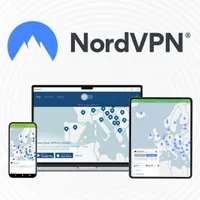What is a dedicated IP address for a VPN and do you need one
Boost your privacy and avoid captchas with a dedicated IP

Connect to a VPN and you'll be assigned a random IP address from one of the VPN servers – and you'll share this IP address with thousands of other users.
This sharing model has its advantages, like making it difficult to trace your activities due to the mixed traffic from many users, but there is a downside. The reputation of your IP can be affected by the actions of others using the same address.
This is where a dedicated IP comes in handy – and they're offered by a lot of today's best VPNs. They ensure that you have a unique IP and allow you to browse the internet untainted by the actions of your fellow VPN users.
Read on and I'll explore what dedicated IPs are, their advantages, and how they differ from shared IPs.
What is a dedicated IP?
A dedicated IP is a unique internet protocol address assigned exclusively to a single user by a VPN service.
Unlike shared IPs, which are used by multiple VPN users at the same time, a dedicated IP is only assigned to a single user and remains constant every time they connect to the VPN.
While shared IPs offer privacy by blending your internet activity with that of others, a dedicated IP provides consistency across several sessions and helps you avoid being filtered by reputation-based systems.

Our guide to IPv4 vs. IPv6 breaks down the major differences between today's most common IP address types.
Having a dedicated IP means you are the sole user of that address for as long as you're paying a subscription. Adding a dedicated IP to your VPN package incurs an additional fee because VPN services must purchase additional IP addresses to offer dedicated IPs, which is why they come at a premium.
This, in turn, is because of the ever-increasingly limited availability of IPv4 addresses, which drives up the price of purchasing a new one from an ISP. After all, the brains behind the internet did not foresee a future where billions of devices would be connected simultaneously.
The problem with shared IPs
Shared IPs are the default when you use a VPN. When you connect to a server, you're assigned the same IP address as numerous other users all connected to that same server. This makes it a lot harder for nosy third parties to trace your activity back to you – but while it's advantageous for privacy, it's also useful for hackers.
Almost every VPN provider (and ISP, for that matter) now uses shared IPs instead of static ones due to the scarcity of IP addresses. In the past, IP addresses were reliable identifiers for individual households – and most websites and online services still work off this model because there isn't really a better way to attribute network traffic to a particular device.
Cybercriminals exploit this by frequently switching IPs to avoid detection. This causes a headache for VPN services because of the sheer number of IP addresses they offer.
These bad actors engage in illegal activities using shared IPs because it's far harder to trace the activities when it's mixed in with the activity of thousands of other users. If malicious actions are detected from a shared IP, however, a site will respond by blocking that IP address.
Cybercriminals exploit shared IPs by frequently switching IPs to avoid detection.
So, one cybercriminal can cause thousands of legitimate users to lose access to a site – or prompt an increased level of security challenges (like CAPTCHAs).
A dedicated IP mitigates these issues. Since you're the only one using the IP, your online actions are yours and yours alone. This means that your access to geo-restricted sites won't be affected by other users and you'll experience fewer obstacles while navigating the web.
VPN providers do their best to monitor and prevent this kind of abuse by removing users they discover sending suspicious traffic. This approach isn't foolproof, however.
It might be easy to detect DDOS traffic but what about vandalism? You've probably noticed that it's nearly impossible to edit Wikipedia while connected to a VPN because trolls use the services to evade IP bans. You'll also see the same sort of problem with services like Cloudflare and Google, which will serve up more CAPTCHA challenges on average due to the heavy traffic from VPNs.
VPN providers are stuck between a rock and a hard place when it comes to kicking hackers and trolls off their services, as a more granular approach to user monitoring would require invasive traffic monitoring that ethical VPNs would be completely unwilling to do. Offering dedicated IPs at an additional cost isn’t an ideal solution – but it's the only one that actually works.
The benefits of a dedicated IP
Dedicated IPs might seem like a pretty niche extra offered up by a VPN, but they have a few surprising benefits you might not be aware of. Essentially, they all boil down to the fact that you're the only person using the IP.
Improved reputation
As I mentioned earlier, a dedicated IP can prevent you from being impacted by the shady online activities of someone else - or by the sheer number of users accessing the same shared IP.
Using a dedicated IP means that you'll encounter fewer CAPTCHAs when accessing sites and services. This is because your IP won;t be bombarded by thousands of users simultaneously, and it's true for streaming services, too, where it's less likely your IP will be identified as coming from a VPN.
Plus, logging into banking sites and social media platforms becomes easier - seeing as these platforms often request two-factor authentication if they detect a login from a new IP address.
Even if you regularly log in from the same location using a VPN, there's no guarantee you'll use the same IP address every time. With a dedicated IP, you can confidently appear to be accessing the service from the same place – even if that place is several thousand miles away.
Secure connectivity
Let's say that you have a home intrusion detection system that you access over the internet using port forwarding. The setup allows for remote access but it isn't very secure.
If your only defense against unauthorized access is knowing the IP address and port number, along with a username and password, it;s just a matter of time before someone gains access. Adding an IP block list to your firewall ensures that your dedicated IP address is the only one that can access the system.
A dedicated IP provided by a VPN also lets you connect securely, no matter where you are, whether you're at home, on hotel Wi-Fi, or using mobile data on the go.
How to get a dedicated IP address
Getting your hands on a dedicated IP address is nice and straightforward. Just follow along with these simple steps:
- Pick out a VPN provider that offers dedicated IPs.
- When you're choosing your plan, add the dedicated IP to your package – and remember that this'll cost you a little extra.
- Then, you'll need to select the location you want to associate with the IP.
- You're good to go.
NordVPN - from $3.39 per month
The best VPN for most people
NordVPN offers dedicated IPs across a wide range of locations. You'll get access to all of the fantastic features NordVPN offers, too, like high-speed connections, integrated anti-virus protection with Threat Protection, and the ability to build your own internal VPN for your devices with Meshnet, as well as a choice of dedicated IP addresses in over 20 locations.
NordVPN also comes with a no-logs guarantee that's been audited by a third party, so you won't need to worry about your dedicated IP being associated with your account. You'll also be able to change your dedicated IP once per subscription if you change your mind, and with a 30-day money-back guarantee there's no reason not to give it a shot.
We test and review VPN services in the context of legal recreational uses. For example: 1. Accessing a service from another country (subject to the terms and conditions of that service). 2. Protecting your online security and strengthening your online privacy when abroad. We do not support or condone the illegal or malicious use of VPN services. Consuming pirated content that is paid-for is neither endorsed nor approved by Future Publishing.
Sign up to the TechRadar Pro newsletter to get all the top news, opinion, features and guidance your business needs to succeed!

Sam Dawson is a cybersecurity expert who has over four years of experience reviewing security-related software products. He focuses his writing on VPNs and security, previously writing for ProPrivacy before freelancing for Future PLC's brands, including TechRadar. Between running a penetration testing company and finishing a PhD focusing on speculative execution attacks at the University of Kent, he still somehow finds the time to keep an eye on how technology is impacting current affairs.
- Mike WilliamsLead security reviewer
